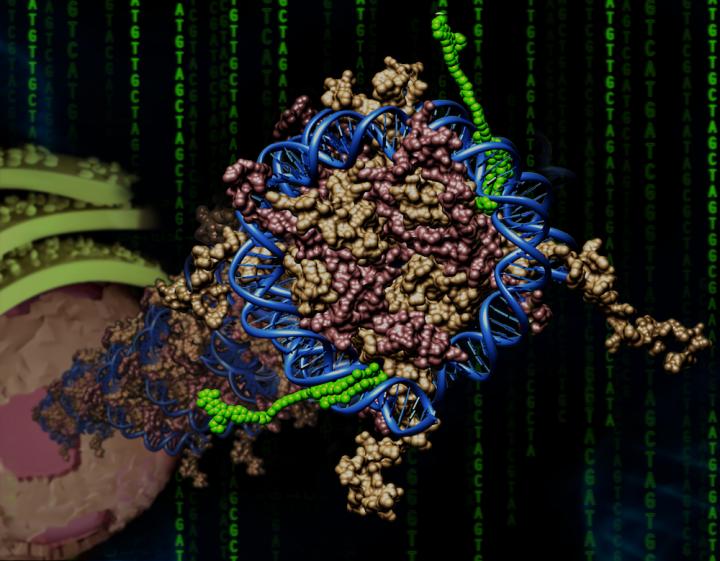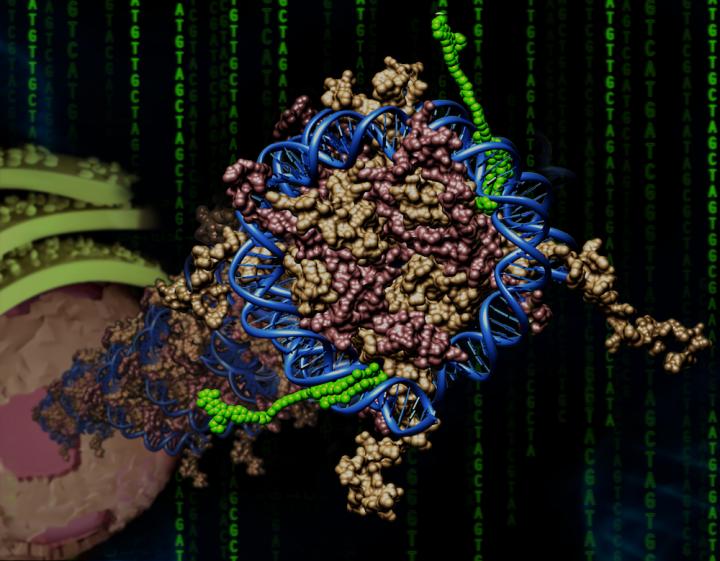
Credit: SaiPadma Priya
A team of researchers in Japan developed a synthetic molecular code to script gene activation. The process, described in the Journal of the American Chemical Society, could help lead to future gene-based therapies for a wide array of diseases.
In particular, the code could help combat epigenetic mutations, which change how genes express themselves and can play a critical role in neurodegenerative disorders like Parkinson's disease, Alzheimer's disease, and multiple sclerosis.
Ganesh Pandian Namasivayam and Hiroshi Sugiyama of Kyoto University's Institute for Integrated Cell-Material Sciences and their colleagues fabricated a molecular code that mimics a key process that turns on genes in the body. The code targets histones, the proteins that are responsible for packaging DNA so that it fits inside a cell's nucleus.
If you uncoiled the DNA in a single cell, it would be about two metres long. To fit inside cells, DNA is tightly wrapped around histones. When histones undergo a chemical process called acetylation, an acetyl group is added to part of their structure. This loosens DNA's attachment to the proteins, which leads to gene activation.
Scientists have been researching ways to influence histone acetylation in order to manipulate gene activation, but current methods have their shortfalls. For example, some synthetic molecules are easily degraded by enzymes in the body. Others are inconsistent in their ability to activate genes.
Junichi Taniguchi, the first author of the study, developed a molecular program that recruits a histone-acetylating enzyme to a specific part of a DNA strand. The program, called Bi-PIP, is formed of two components: a bromodomain inhibitor, which recruits a specific type of histone acetyltransferase enzyme; and a synthetic hairpin-shaped molecule that recognizes a specific DNA sequence.
The code was successful in emulating the natural histone acetylation process and led to the activation of a specific gene associated with central nervous system inside living cells. However, the researchers note that further work is needed to improve Bi-PIP's gene selectivity. This work adds to a library of small molecule genetic regulators that could form the basis for epigenomics and future gene therapies to treat multi-factorial neurodegenerative disorders.
###
For more information about this research, contact
Ganesh Pandian Namasivayam
[email protected]
DOI: 0.1021/jacs.8b01518
About Kyoto University's Institute for Integrated Cell-Material Sciences (iCeMS)
t iCeMS, our mission is to explore the secrets of life by creating compounds to control cells, and further down the road to create life-inspired super materials that confront the myriad problems that afflict modern society. In only a decade, collaborative research at iCeMS has resulted in significant cutting-edge scientific discoveries, and the creation of over 1500 unique materials. We will keep turning our inspirations into purposeful, transformative innovations for the practical benefit of society. https://www.icems.kyoto-u.ac.jp/en/
For more information about iCeMS, contact
Izumi Mindy Takamiya
[email protected]
Media Contact
Izumi Mindy Takamiya
[email protected]
81-757-539-764
@KyotoU_News
http://www.kyoto-u.ac.jp/en





